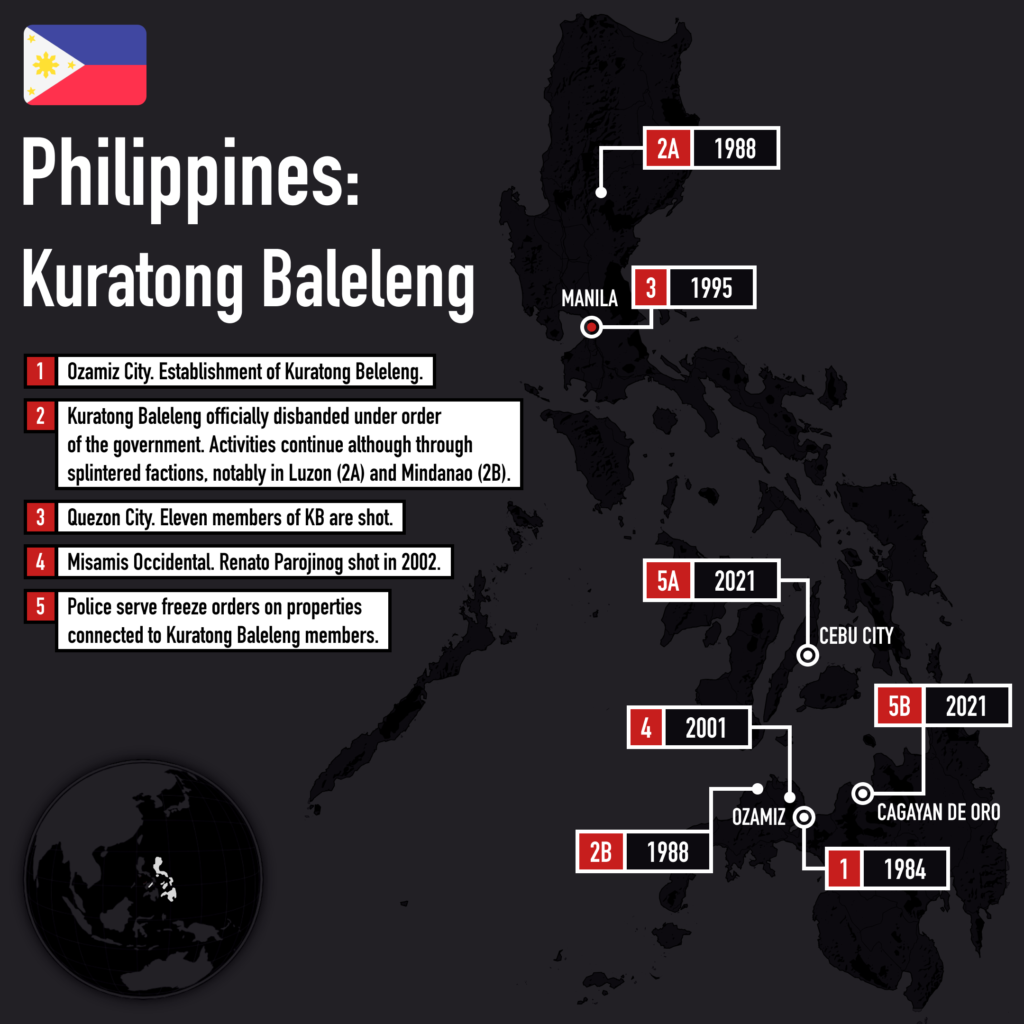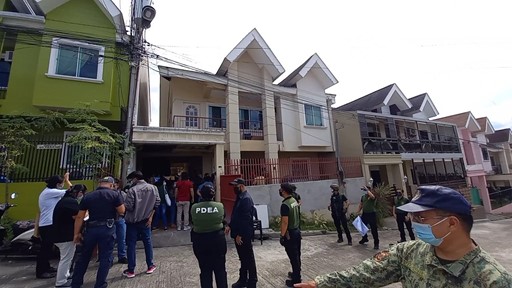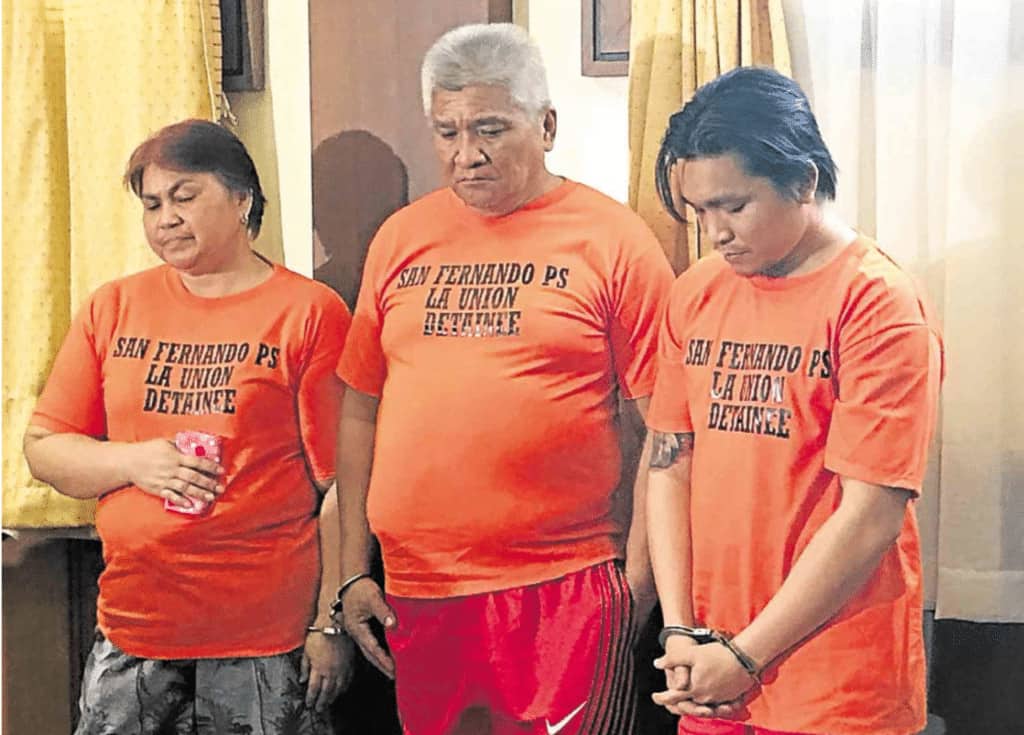‘Kuratong Baleleng’ is the name of a notorious Filipino crime syndicate whose activities include murder, trafficking, robbery, and illegal gambling.
Kuratong Baleleng: A Timeline
- 1984 – Kuratong Baleleng founded by the military as an anti-communist militia.
- 1988 – Kuratong Baleleng officially disbanded under order of the government; however, activities continued under splinter groups.
- September 1990 – Octavio Parojinog, then leader of Kuratong Baleleng, dies in an anti-drug operation, resulting in further splintering. His son Reynaldo Parojinog becomes the defacto leader.
- 1990 – Army Major Franco Calanog dies in a drug bust operation by the National Bureau of Investigation.
- May 1995 – Officers allegedly unlawfully kill 11 members of Kuratong Baleleng.
- 2001 – Ozamiz City elect Reynaldo Parojinog as Mayor. His brother, Renato, is elected as a provincial board member of Misamis Occidental.
- February 2002 – A lone gunman assassinates Renato Parojinog.
- 2017 – Police kill Reynaldo Parojinog and his family during a search for firearms.
- 2018 – Police arrest further relatives of the Parojinog family in conjunction with illegal firearms, drug operations, robbery, and murder.
- 2020 – President Duterte renews the war on drugs and publicly issues a statement linking Kuratong Baleleng members to the police force.
- February 2021 – Police serve freeze orders on properties connected to Kuratong Baleleng members.
- Present – The Criminal group remains active in the Philippines.
Kuratong Baleleng: Map

Summary
In Tagalog, ‘Kuratong’ is a bamboo percussion instrument traditionally used to summon villagers together or warn them of danger, and ‘Baleleng’ is a folkloric figure. As innocuous as these two terms may be on their own, ‘Kuratong Baleleng’ is the name of a notorious crime syndicate in the Philippines, whose illicit activities include murder, drug trafficking, armed robbery, and illegal gambling.
So What?
Kuratong Baleleng is arguably the largest and most powerful criminal organisation in the Philippines. The gang has been in operation for over 30 years. Primarily comprised of members of the Parojinog family, Kuratong Baleleng leaders have long held city and provincial government office positions.
Conversely, the Philippines’ President Duterte has publicly condemned the group and continues to take legal action against these gang members. This creates a complex and oxymoronic political landscape in which the government is at war with its own elected officials.
Background
Kuratong Baleleng originated in 1984 in Ozamis City. Initially, the group began as a militia under the Philippine Army 101st Battalion to combat the growing communist guerrilla insurgency. However, reports have suggested that Kuratong Baleleng may have formed through members of the Botanic Youth Club as a means of meeting. Army Major Franco Calanog originally organised the group, and Octavio Parojinog led it. By 1987, the group claimed to have over 60 members and received weaponry from Military Headquarters in Zamboanga City.
Interestingly, Kuratong Baleleng initially had significant public approval, seen as ‘Robin Hoods’ protecting the local communities’ interests. Kuratong Baleleng reportedly shared much of their earnings from their illicit activities with those in need in local areas, winning them favour among civilians. Whilst working as a politically motivated militia, Kuratong Baleleng took part in multiple political activities, such as house searches for known NPA members.
Officially, Kuratong Baleleng disbanded in 1988 by the military. However, members have continued to operate under this name as a crime syndicate involved in illicit activities. The Intelligence Service of the Armed Forces of the Philippines (ISAFP) describes Kuratong Baleleng as ‘one of the many criminal syndicates being controlled and used by powerful individuals for financial, political, and even personal undertakings’.
The 1990s
Octavio Parojing died in 1990 when police shot him during a drugs raid. His son, Reynaldo Paroijing, became the group’s defacto leader, though this resulted in the further splintering of the group. Major Franco Calanog died in a National Bureau of Investigation Anti-Drug operation, leaving the group without any form of military supervision. From this point, the group’s activities shifted from politically-motivated activities towards criminal activities, such as armed robberies and extortion.
1995 Shootings
1995 saw the deadliest counterattack on the group. On the 18th of May 1995, police shot 11 Kuratong Baleleng members, which officials described as a ‘shootout’ with law enforcement. However, subsequent testimony indicated the police acted unlawfully and effectively executed the men, as the group members were not armed or posing a threat to police at the time of the incident – it was not a shootout at all.
The 1995 incident has been subject to significant judicial debate in the Philippines. Police brought charges against 26 members of the Presidential Anti-Crime Commission and the Anti-Bank Robbery and Intelligence Task Group. However, the Supreme Court dismissed all charges in 2003, wherein there was a lack of probable cause. Despite this legal resolution, the incident remains infamous and controversial amongst the public within the Philippines.
The 2000s
2001 was significant in terms of strengthening the political power of the Parojinog family. Ozamiz City elect Reynaldo Parojinog as Mayor. In addition, his brother, Renato, was elected as a provincial board member of Misamis Occidental.
However, this political success did not last long. On the 15th of February 2002, a lone gunman assassinated Renato Parojinog. Police have been unable to identify the perpetrator.
The 2010s
Following Renato’s death, police killed Reynaldo Parojinog and his family during a search for firearms in 2017.

Family members of Kuratong Baleleng members were arrested in April 2018 in La Union, including Ozamiz City Councilor Rizalina Francisco and her family. Since this time, Kuratong Baleleng’s activities slowed significantly.
Present
Despite the arrests and deaths of many Parojinog family members and their associates, Kuratong Baleleng continues to operate in the Philippines. However, analysts know little about its current leadership structure. The group has claimed several strongholds in Mindanao, Manila, and Cebu.
In 2020, President Duterte revived the discussion surrounding organised crime and the war on drugs by releasing a vague statement suggesting a link between police officials and Kuratong Baleleng members. He stated that multiple regional mayors conducted corrupt activities whilst in office and accused police officers of helping the gang. Whilst it is known that multiple members of the Parojinog family hold government positions, the claims of corruption whilst in office have not been substantiated publicly.

The Philippines strengthened AML regulations in 2012 to allow for temporary assets and property seizure if linked to criminal activity. As a result, in February 2020, government officials served Freeze Orders on properties in Barangay Bulua and Cebu City, owned by several suspected members of Kuratong Balaleng.
Conclusion
Whilst Kuratong Baleleng membership is significantly lower today than it once was, the gang’s presence remains a threat to the government of the Philippines. This is because Duterte’s “War on Drugs” is synonymous with “War on Kuratong Baleleng” in many senses.
Kuratong Baleleng’s deep-rooted conflict with the police, military, and government makes them a critical adversary of the Philippine government. Interestingly, whilst a crime syndicate by nature, their ‘charitable’ acts, such as illegally taxing businesses to give back to local communities, make the group and the Parojinog family and affiliates popular with the voting population. This, in turn, further solidifies their social and political power whilst simultaneously undermining President Duterte’s political legitimacy and War on Drugs.
The recent ties between police and Kuratong Baleleng complicate the picture and undoubtedly create significant concern that the syndicate is strengthening once again, perhaps with access to more government support than ever before.

